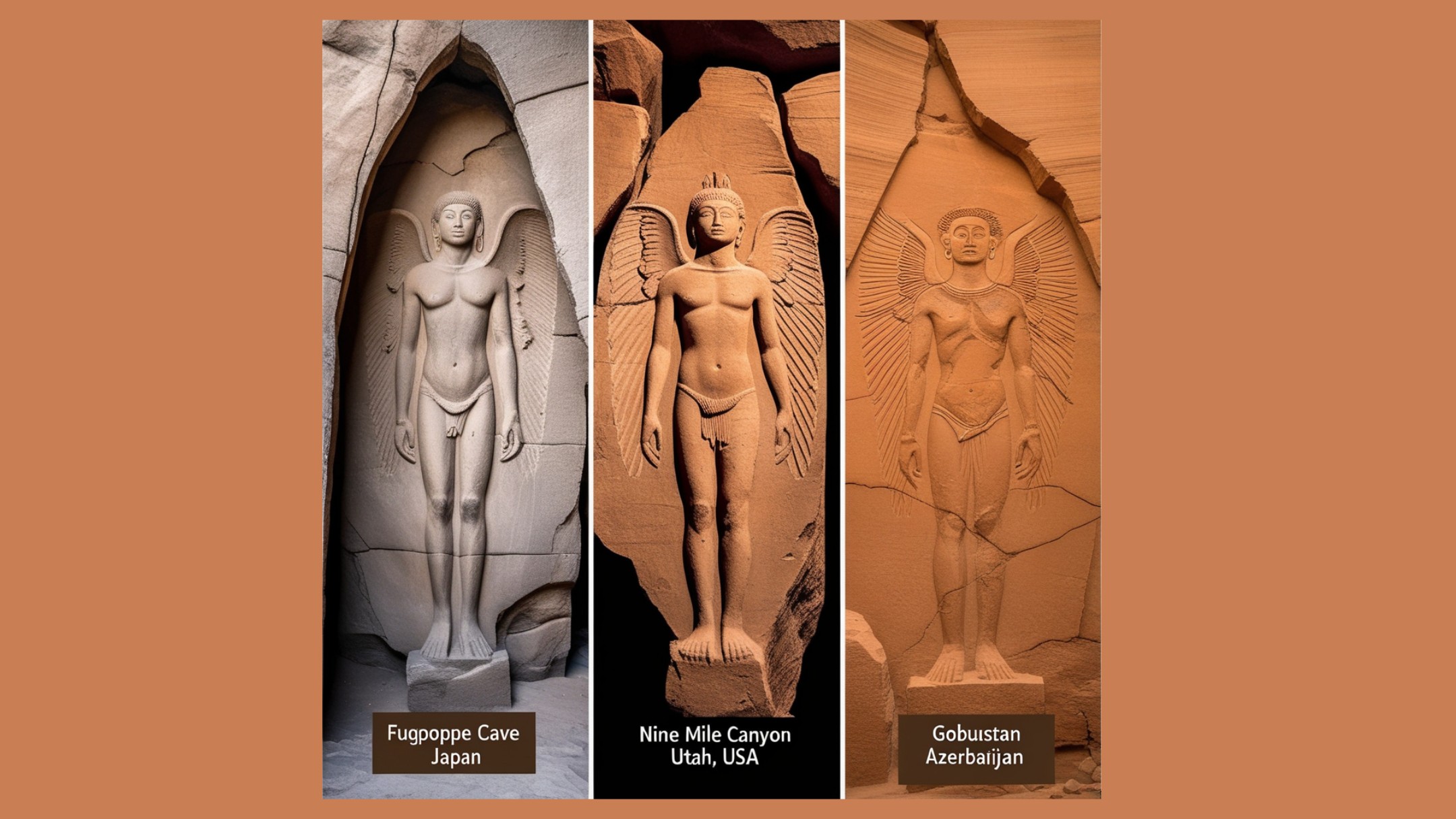Ancient Winged Petroglyphs: A world Mystery
Ancient Winged Petroglyphs: A world Mystery
Blog Article
Around the world, historical petroglyphs featuring winged or flying figures spark fascination and discussion. Present in disparate placesâÂÂFugoppe Cave in Japan, Nine Mile Canyon in Utah, United states, and Gobustan in AzerbaijanâÂÂthese carvings, developed A large number of years apart, share a strikingly very similar motif. What do these winged beings symbolize?
In Japan's Fugoppe Cave, courting again seven,000 a long time, human-like figures with wing-like extensions advise spiritual or shamanic importance. Similarly, the Nine Mile Canyon petroglyphs, designed one,000âÂÂ2,000 several years in the past by Native American cultures, depict anthropomorphic figures that might symbolize spiritual messengers or shamans. Meanwhile, AzerbaijanâÂÂs Gobustan rock art, approximately ten,000 yrs old, attributes winged figures believed to characterize mythological deities or divine beings.

Theories about this shared imagery range between impartial enhancement pushed by common human ordeals to the opportunity of historical cultural exchanges. Regardless, these carvings emphasize a deep human fascination with flight, transcendence, and spirituality, offering a glimpse into your shared creativeness of our ancestors.
Investigate this intriguing secret even further and uncover humanityâÂÂs historic connections etched in stone. Report this page